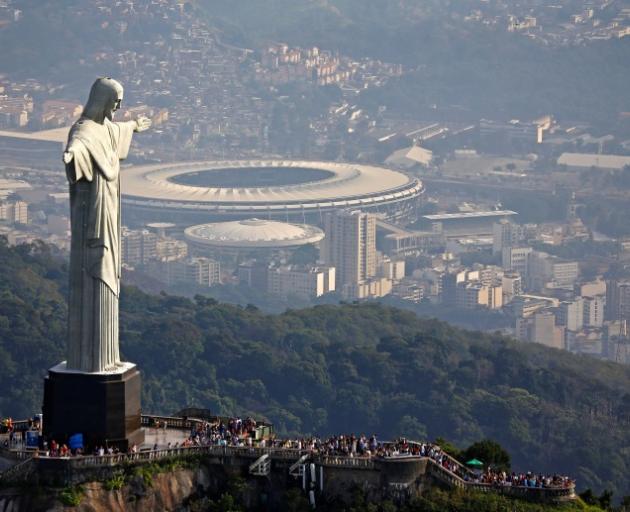
Worried about surviving a mugging during the Rio Olympics? Have money ready in your pocket to keep your attacker happy.
That's the advice French visitors heading for the Games are getting from their government to minimise the risk of being hurt in the notoriously dangerous Brazilian city.
France's security advisory recommends that tourists walk Rio streets with no jewellery or valuables, and carry a spare 20 real or 50 real bill ($NZ8 or $NZ21) ready to give to a mugger.
"The idea is that it's best not to resist an assault and always useful to have a 20 or 50 real bill to keep the robber happy," French embassy spokesman Thibaut Lespagnol said.
As many as half a million foreign tourists are expected to descend on Rio for the first Olympic Games to be held in South America from August 5-21, and Brazil is deploying 88,000 police and troops to protect them from terrorist threats and dissuade muggers.
Rio de Janeiro has a high incidence of crime, including pick-pocketing and armed robberies that can happen at any place and at any time, a US State Department advisory warned.
Credit card fraud and ATM scams were also endemic and visitors should check their accounts regularly for unexpected withdrawals, it said.
The city's colorful hillside shanty towns, called favelas, are rife with drug trafficking and armed violence, despite a "pacification" programme that placed police stations in some of them, and can be dangerous for curious visitors.
"Even pacified favelas can be unpredictable and dangerous. US visitors who visit favelas could be placing themselves at risk," the State Department advised.
Rio is a marvel and a mess - all at once. Visitors will see a city whose stunning topography - stark, verdant mountains loom over packed and playful beaches - competes only with the drama of daily life.
Despite the drug gangs, violent crime, gaping inequality and heavy pollution, the natural splendor of Rio makes even locals joke that no matter how hard they try, they somehow never manage to ruin the place.
From above, atop the Pão de Açucar outcropping or the jungle aeries of the lush Tijuca park, sharp contrasts take shape between sclerotic city streets and forests where monkeys, toucans and boa constrictors wander.
Down below, demographic differences are just as stark.
Upscale apartment blocks and opulent mansions abut hillside slums and urban blight. Restaurants and luxury shopping centers buzz with clientele even amid a recession that means nearby hospitals and schools are so short of financing they sometimes have to close.
Of course, Olympic visitors may not see much more of Rio than the spectacle of the Games. And the city, a sprawling metropolis of more than 12 million people, is impossible to take in all at once.
But for anyone willing to make the effort, Rio remains a sight to behold.











